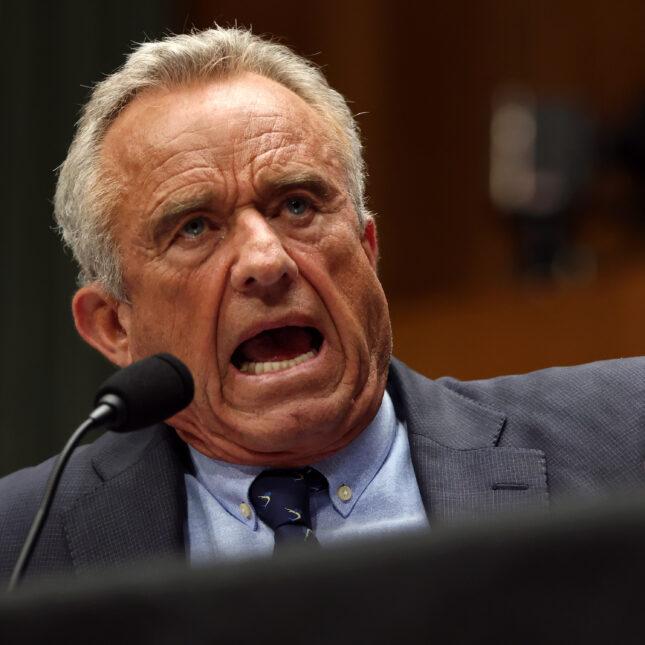In recent months, Robert F. Kennedy Jr.’s controversial health policies have sparked intense debate across the United States, but emerging analyses suggest their impact may extend far beyond domestic borders. Critics argue that Kennedy’s approach to public health, particularly his opposition to certain vaccination programs and regulatory measures, is inadvertently undermining America’s scientific leadership on the global stage. As China continues to make significant advancements in biotechnology and medical research, experts warn that the ideological divide shaped by these policies could be accelerating a shift in the global balance of scientific power. This article examines how RFK Jr.’s health stance is being viewed as a factor in China’s growing advantage over the United States in science and technology.
RFK Jr’s Health Policies Undermine American Scientific Advancement
The repercussions of undermining established scientific consensus in public health policies extend far beyond national debates and delusions. RFK Jr’s approach, often marked by skepticism of vaccinations and skepticism towards mainstream medical research, jeopardizes decades of progress rooted in rigorous scientific inquiry. This stance risks diverting valuable resources and attention from critical areas such as biomedical innovation and pandemic preparedness, putting the United States at a disadvantage on the global stage. In particular, such policies threaten to erode public trust in science-based institutions, which is essential for sustaining long-term research funding and nurturing future generations of scientists and healthcare professionals.
Meanwhile, competitor nations, most notably China, continue to invest heavily in advanced scientific infrastructure and talent cultivation. Their edge is built on unwavering support for evidence-based policies and an aggressive push into fields like biotechnology, artificial intelligence, and pharmaceuticals. The following table highlights how divergences in health policy philosophies can impact scientific leadership:
| Area | U.S. with Skeptical Health Policies | China’s Strategic Focus |
|---|---|---|
| Vaccination Programs | Reduced adoption; increased hesitancy | Nationwide, government-backed mandates |
| Research Funding Stability | Fluctuating; politically influenced | Steady, long-term commitments |
| Public Trust in Science | Declining trust | High confidence |
| Innovation Output | Fragmented and slowed | Rapid growth and patents increase |
To maintain its position as a global scientific powerhouse, America must resist the politicization of health policy and reaffirm its dedication to evidence-based decision making. Otherwise, the short-term appeal of contrarian narratives risks long-term consequences that benefit rival nations eager to capitalize on any lapse in U.S. scientific leadership.
The Impact of Regulatory Shifts on US Innovation and Global Competitiveness
Recent regulatory adjustments driven by domestic political agendas have significantly altered the landscape for scientific research and technological innovation in the United States. Looser oversight on certain health policies, combined with a wavering commitment to stringent standards, has inadvertently created an environment where US innovators face increased uncertainty and operational challenges. This uncertainty hinders investment in critical research and slows the pace of breakthroughs, leaving competitors abroad to capitalize on these gaps. Meanwhile, China’s methodical approach to regulation, which balances ambition with clear, supportive frameworks, is enabling it to outpace the US in sectors like biotechnology and clean energy.
Key consequences of these regulatory dynamics include:
- Delayed clinical trials and market entry for new therapies
- Reduced private sector funding due to risk aversion
- Talent drain as researchers seek stable environments overseas
- Decline in global patent filings and scientific publications
| Indicator | United States (2023) | China (2023) |
|---|---|---|
| R&D Spending Growth | +2.1% | +9.4% |
| Biotech Patent Applications | 14,200 | 18,700 |
| Global Scientific Publications | 105,000 | 123,500 |
| Government Innovation Grants | $25B | $37B |
Strategic Recommendations to Counter China’s Rising Dominance in Science and Technology
To reclaim leadership in science and technology, the United States must invest decisively in its research infrastructure and talent development pipelines. Prioritizing federal funding for emerging fields like artificial intelligence, biotechnology, and quantum computing can narrow the gap with China’s rapidly expanding capabilities. Equally critical is fostering public-private partnerships that incentivize innovation and incorporate cybersecurity as a foundational pillar in technology policy. Without a strategic, whole-of-nation approach, America risks falling further behind in industries that shape global economic and military power.
In addition to funding and innovation, reforming education to produce a more skilled STEM workforce is essential. Policymakers should:
- Expand scholarships and training programs focused on high-demand tech sectors.
- Enhance collaboration between universities and industrial leaders to align curricula with real-world needs.
- Strengthen immigration policies that attract and retain top global talent in science and engineering.
These reforms, coupled with a robust national strategy, will empower America to compete effectively and mitigate the consequences of any internal policy missteps that currently undermine its scientific leadership.
| Focus Area | Strategic Action |
|---|---|
| Research Funding | Increase by 25% over 5 years |
| STEM Education | Expand scholarships & hands-on training |
| Talent Retention | Streamline visas for scientific professionals |
| Public-Private Partnerships | Launch innovation hubs nationwide |
In Retrospect
In an era defined by rapid technological advancement and fierce global competition, the consequences of domestic health policy decisions extend far beyond national borders. Critics argue that RFK Jr.’s approach to health policy may inadvertently hinder America’s scientific progress, providing adversaries like China with an edge in innovation and public health outcomes. As the nation grapples with these challenges, the debate over the intersection of health policy and scientific leadership is poised to intensify, underscoring the need for a balanced strategy that safeguards both public wellbeing and America’s competitive edge on the world stage.
